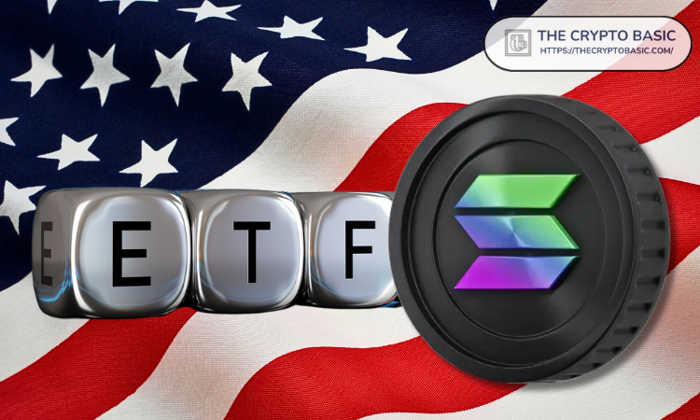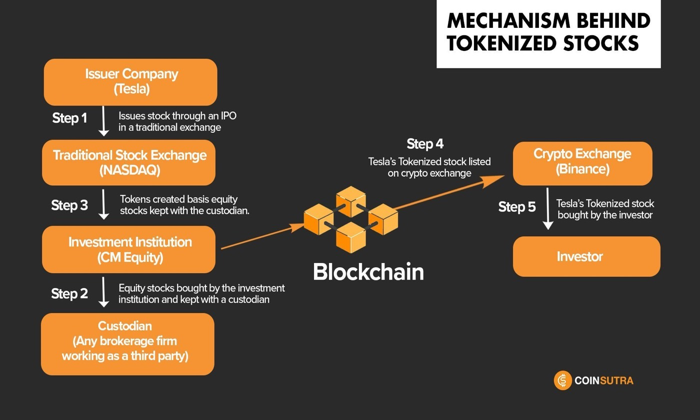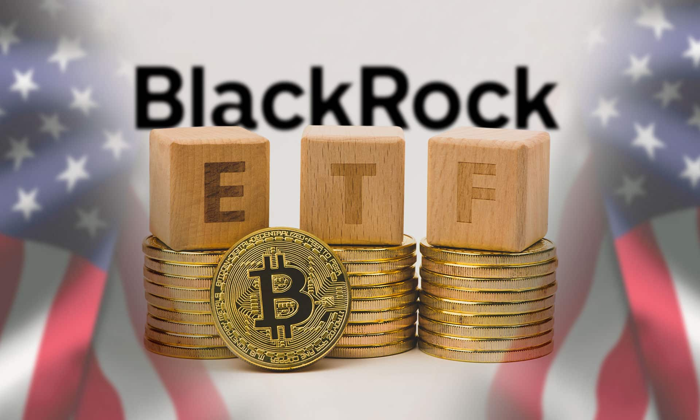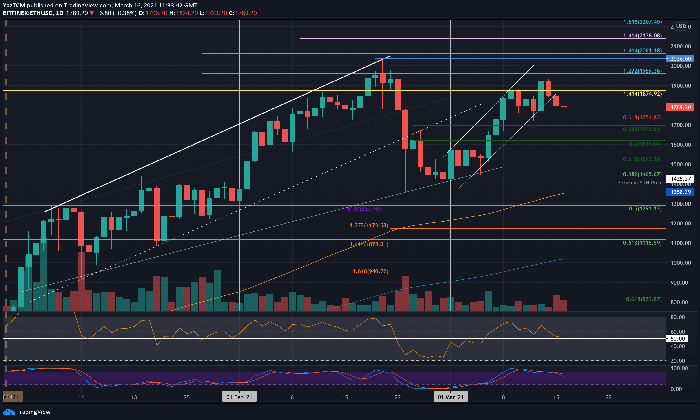In a significant move, Ripple contended that cryptocurrencies, particularly in the case of XRP, are not securities in secondary transactions. The company’s assertion stems from a letter sent to the U.S. Securities and Exchange Commission (SEC), where Ripple emphasized the distinction of fungible cryptocurrencies from securities in its dealings. This argument gains credence, especially in light of the ongoing discussions around cryptocurrency regulations spearheaded by figures like SEC Commissioner Hester Peirce. The Ripple SEC letter details a perspective that resonates with legal experts, arguing that secondary sales of cryptocurrencies do not meet the criteria of investment contracts defined by existing law. As the crypto industry reclaims its footing amidst regulatory scrutiny, the implications of the XRP SEC ruling may pave the way for a clearer understanding of digital asset classification in the financial landscape.
The debate surrounding the classification of digital assets has intensified, with many industry stakeholders rallying for a clearer regulatory framework. Various forms of cryptocurrency, such as fungible tokens, are poised at the center of this discussion, particularly in light of a recent SEC correspondence. Legal experts and crypto advocates, including notable voices like Hester Peirce from the SEC, are emphasizing that the economic realities of these digital currencies must be considered when categorizing them. Moreover, recent rulings regarding XRP have sparked a dialogue about how cryptocurrencies can coexist with traditional securities without falling under rigid regulatory classifications. As both legal frameworks and market practices evolve, the conversation about whether these assets should be deemed securities continues to advance.
Understanding the SEC’s Stance on Ripple and XRP
The U.S. Securities and Exchange Commission (SEC) has taken a markedly broad approach to regulating digital assets, categorizing many cryptocurrencies, including XRP, under the securities classification umbrella. The former chair of the SEC, Gary Gensler, has publicly stated that a substantial portion of the cryptocurrency market is subject to enforcement as securities, leading to a stringent regulatory climate. This perspective has raised concerns among crypto advocates like Ripple, who argue that such categorization undermines the innovative potential of blockchain technology and fungible cryptocurrencies.
In a legal battle that started in late 2020, the SEC accused Ripple Labs and its executives of conducting unregistered securities offerings through the sale of XRP. However, Ripple has consistently contested this classification, asserting that XRP is a digital asset that does not fit the definition of a security, particularly in secondary sales. The ongoing litigation showcases the tension between regulators and cryptocurrency entities, fueling discussions around how cryptocurrency regulations should evolve while maintaining investor protections.
Ripple’s Argument: Fungible Cryptocurrencies and Secondary Sales
In a recent letter to the SEC, Ripple argued that fungible cryptocurrencies, particularly in secondary sales, should not be classified as securities. This standpoint aligns with the insights of U.S. attorney Lewis Cohen, who asserts in his landmark paper that there isn’t a legal basis under current securities laws to label most fungible crypto assets as securities during secondary market transactions. Ripple emphasizes that such transactions lack the characteristics of investment contracts, which are essential to the definition of securities.
This assertion is critical as it distinguishes secondary sales of XRP from historical institutional sales that were ruled as investment contracts. By clarifying this difference, Ripple aims to not only protect its own practices but also contribute to a clearer understanding of cryptocurrency regulations. These arguments illustrate the need for a more nuanced application of securities laws, especially in a rapidly evolving digital asset landscape.
Hester Peirce’s Regulatory Insights on Cryptocurrency
SEC Commissioner Hester Peirce, a vocal advocate for clearer regulatory frameworks in cryptocurrency, has publicly criticized the SEC’s broad classification of digital assets as securities. In her address on May 19, she emphasized that many cryptocurrencies, including fungible ones like XRP, should be assessed based on their economic realities rather than traditional regulatory definitions. Peirce’s stance supports Ripple’s arguments against the classification of fungible cryptocurrencies in secondary transactions as securities.
Her remarks underline the growing call for a balanced approach to cryptocurrency regulation—one that acknowledges the distinct nature of digital assets without overreaching to stifle innovation. By advocating for a coherent framework, Peirce seeks to promote a regulatory environment where cryptocurrencies can thrive while ensuring consumer protection, highlighting the tension between traditional financial regulations and the new age of decentralized finance.
Legal Developments Surrounding Ripple and SEC
The legal saga between Ripple and the SEC is emblematic of the challenges facing the cryptocurrency industry as regulators strive to catch up with technological innovations. Since the SEC’s accusations in 2020, there have been several pivotal rulings that favored Ripple’s position, particularly concerning the classification of XRP. Most notably, the recent decision by the SEC to retract its appeal against Ripple’s favorable ruling indicates a potential shift in regulatory approaches to cryptocurrencies, suggesting they may start recognizing the unique characteristics of digital assets.
Ripple’s legal victories not only bolster its defense but also pave the way for greater clarity in cryptocurrency regulations moving forward. The courts’ distinctions between historical sales and secondary market transactions may influence future rulings and shape how other cryptocurrencies are classified, thereby impacting the entire digital asset ecosystem.
The Future of Cryptocurrency Regulations Post-Ripple Case
As the Ripple case unfolds, the implications for cryptocurrency regulations become more pronounced. A ruling that recognizes fungible cryptocurrencies like XRP as non-securities in secondary sales could set a significant precedent that influences future regulatory policies. The outcome may encourage other cryptocurrency projects to argue for similar distinctions, further shaping the evolving landscape of digital assets.
The ongoing developments also serve as a wake-up call for regulators, emphasizing the importance of adapting existing financial laws to accommodate emerging technologies. A redefined regulatory landscape could foster innovation while ensuring investor protections, striking a much-needed balance in the cryptocurrency market.
The Role of Investment Contracts in Cryptocurrency
Investment contracts are at the heart of the debate surrounding the classification of cryptocurrencies like XRP. According to securities law, if a transaction involves an investment contract, it qualifies as a security and falls under SEC regulations. However, Ripple’s defense hinges on the assertion that secondary sales of XRP do not constitute investment contracts, as they lack the necessary legal relationship between the issuer and purchaser that is characteristic of traditional security transactions.
Legal interpretations of investment contracts can significantly impact how cryptocurrencies are treated under the law. A clearer understanding of these definitions may help delineate which digital assets are subject to regulation as securities, ultimately influencing the types of offerings permissible within the cryptocurrency space.
Implications of the Ripple SEC Battle on Innovation
The Ripple versus SEC battle highlights the tension between regulatory oversight and the need for innovation in the cryptocurrency sector. Should courts continue to favor Ripple’s stance that fungible cryptocurrencies should not be classified as securities in secondary transactions, it could invigorate the market and encourage further investment and innovation. By alleviating regulatory burdens associated with securities laws, cryptocurrency projects may gain a more favorable environment to develop and launch new technologies.
Conversely, if the SEC’s broad interpretation prevails, it may stifle innovation and discourage new entrants into the cryptocurrency market. This outcome could diminish the competitive edge that decentralized finance and blockchain technologies have on traditional financial systems, ensuring that clarity in regulation remains critical for fostering growth and protecting investors.
The Importance of Legal Clarity in Cryptocurrency
As the cryptocurrency market continues to grow, the need for legal clarity becomes paramount. The Ripple case exemplifies the uncertainty surrounding the classification of digital assets and the urgent need for comprehensive regulatory frameworks. Clear definitions on what constitutes securities in relation to cryptocurrencies could alleviate confusion for investors and developers alike, creating an environment conducive to innovation.
Legal clarity will not only benefit Ripple and its associates but will also have a ripple effect across the entire cryptocurrency ecosystem. By providing consistent guidelines, regulators can ensure that legitimate projects thrive while protecting consumers from potential fraud, thus fostering a sustainable future for digital assets.
Potential Outcomes of the Ripple SEC Lawsuit
The ongoing lawsuit between Ripple and the SEC may lead to several potential outcomes, each with varying implications for cryptocurrency regulation as a whole. A ruling in favor of Ripple could establish a precedent that determines fungible cryptocurrencies, especially in circumstances like secondary sales, are not securities. This would potentially reshape how cryptocurrencies are classified, leading to new opportunities for development and investment.
Conversely, a ruling favoring the SEC could affirm the regulatory body’s broad interpretation of cryptocurrencies as securities, obliging a significant number of digital asset projects to comply with stringent regulations. Such an outcome would not only influence Ripple’s future but could also deter innovation and create hurdles for emerging projects in the cryptosphere.
Frequently Asked Questions
Why does Ripple argue that fungible cryptocurrencies like XRP are not securities in secondary transactions?
Ripple argues that fungible cryptocurrencies, such as XRP, should not be classified as securities during secondary transactions because they do not create an investment contract, a necessary condition for securities classification. The company referenced a legal opinion from Lewis Cohen, which supports this view, stating there is no legal basis for categorizing most fungible crypto assets as securities when transferred in the secondary market.
What was the significance of the Ripple SEC letter sent on May 27 regarding cryptocurrency regulations?
The Ripple SEC letter, sent on May 27, is significant because it challenges the SEC’s broad classification of digital assets as securities. By asserting that fungible cryptocurrencies do not fit the definition of securities in secondary sales, Ripple is seeking to clarify the regulatory landscape for cryptocurrencies and advocate for a framework that recognizes them as non-securities in specific contexts.
How have SEC officials like Hester Peirce contributed to the discussion on Ripple and cryptocurrency regulations?
SEC Commissioner Hester Peirce has contributed to the discussion on Ripple and cryptocurrency regulations by criticizing the SEC’s strict approach to regulating crypto markets. In her speeches, she emphasized the need for a coherent regulatory framework that acknowledges most cryptocurrencies, including XRP, should not be classified as securities, thus aligning with Ripple’s stance on fungible cryptocurrencies.
What does the XRP SEC ruling indicate about the classification of cryptocurrencies?
The XRP SEC ruling indicates that while some of Ripple’s initial sales of XRP were deemed investment contracts (thus classified as securities), subsequent secondary sales do not constitute securities transactions. This ruling implies that cryptocurrencies might not fit neatly into the SEC’s definitions and opens the door for debating the nature of fungible cryptocurrencies in terms of security regulations.
What are the implications of Ripple’s claim that fungible cryptocurrencies should not be viewed as securities?
Ripple’s claim that fungible cryptocurrencies should not be viewed as securities has significant implications for the cryptocurrency market. If accepted, it could influence regulatory perceptions and practices, fostering a more favorable environment for cryptocurrency transactions and reducing legal uncertainties for many digital asset projects beyond just Ripple.
| Key Points | Details |
|---|---|
| Ripple’s Position | Ripple states that fungible cryptocurrencies, including XRP, are not securities in secondary transactions. |
| Legal Reference | Ripple cites Lewis Cohen’s paper on securities law, asserting fungible crypto assets lack investment contracts when transferred. |
| Support from SEC Commissioner | Commissioner Hester Peirce criticized the SEC’s regulatory approach, suggesting cryptocurrencies should not generally be classified as securities. |
| SEC’s Perspective | The SEC has broadly categorized many digital assets as securities, leading to litigation against Ripple. |
| Court Rulings | A court ruled that certain XRP sales were investment contracts but deemed secondary sales as non-securities. |
Summary
In summary, Ripple cryptocurrencies are not securities according to Ripple’s recent letter to the SEC. The ongoing debate centers around the classification of fungible cryptocurrencies in secondary transactions, which Ripple and legal experts argue should not be viewed as securities. With support from Commissioner Hester Peirce and favorable court rulings, Ripple’s stance brings significant attention to the need for clearer cryptocurrency regulations.
In a groundbreaking letter to the SEC, Ripple has boldly asserted that Ripple cryptocurrencies, particularly the XRP digital asset, should not be classified as securities in secondary transactions. This argument comes at a critical time as many in the cryptocurrency community are vying for clear cryptocurrency regulations amidst ongoing legal battles, such as the notable XRP SEC ruling. Ripple’s position hinges on the assertion that fungible cryptocurrencies do not meet the criteria for investment contracts, an essential characteristic that defines securities. By referencing insights from legal experts like Lewis Cohen, Ripple strengthens its stance that most digital currencies do not fit within this regulatory framework. Furthermore, SEC Commissioner Hester Peirce has also echoed this sentiment, advocating for a more rational approach to determining what constitutes a security within the ever-evolving landscape of cryptocurrencies.
The ongoing debate surrounding the classification of digital assets continues to gain attention as Ripple emphasizes the importance of recognizing certain cryptocurrencies as distinct from traditional securities. Through its authoritative communication with the SEC, Ripple aims to clarify how fungible digital currencies should be treated in secondary markets. This discourse reflects a broader trend in cryptocurrency discussions, particularly in regard to how various assets, including tokens like XRP, should face lighter regulatory scrutiny. Legal commentators have made compelling arguments asserting that many cryptocurrencies lack the fundamental characteristics of securities, challenging existing notions and prompting calls for reform. As regulatory bodies grapple with defining the nature of these assets, the stakes rise for blockchain companies navigating these uncertain waters.















